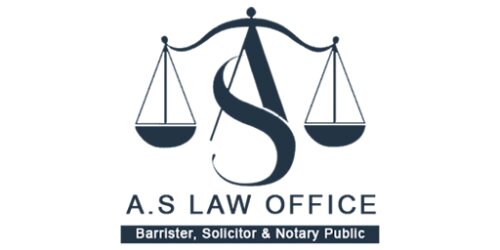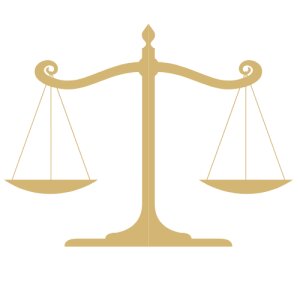Best Appeal Lawyers in Winnipeg
Share your needs with us, get contacted by law firms.
Free. Takes 2 min.
List of the best lawyers in Winnipeg, Canada
About Appeal Law in Winnipeg, Canada
Appeal law in Winnipeg, Canada, involves requesting a higher court to review and change the outcome of a decision made by a lower court. Appeals can arise from criminal, civil, or administrative matters and are governed by specific rules and timelines. The appellate court reviews the record of the lower court proceedings, legal arguments, and relevant case law to determine if there were errors significant enough to affect the verdict. In Winnipeg, as part of Manitoba's judicial system, the Manitoba Court of Appeal serves as the primary appellate court.
Why You May Need a Lawyer
If you believe a legal decision is unjust, incorrect, or if there were procedural errors in your trial, you might require legal assistance for an appeal. Common situations include: - A criminal conviction or sentencing that seems unfair or legally flawed. - A civil court case where you feel the decision was based on misapplication of the law or significant evidence was overlooked. - Decisions from administrative tribunals that impact your rights or obligations unjustly. A lawyer with expertise in appellate procedures can help navigate complex legal standards and provide effective representation.
Local Laws Overview
Appeal laws in Winnipeg are governed by provincial statutes and rules. Key aspects include: - The right to appeal is usually not automatic-certain conditions must be met. - Appeals must typically be filed within 30 days following a court's decision. - The appellate process is focused on legal errors rather than factual disputes. - New evidence is generally not admissible unless it significantly impacts the case and was unavailable during the original trial. It's essential to understand these principles to determine the possibility of a successful appeal.
Frequently Asked Questions
What is the difference between an appeal and a new trial?
An appeal reviews the decision based on the existing record of the case, while a new trial involves a complete reevaluation with new evidence and witnesses.
Can any decision be appealed?
Not all decisions can be appealed. Permission may be needed if the law specifies that an appeal requires leave (approval) from the court.
What is the standard of review in an appeal?
The standard of review varies; legal mistakes may undergo a thorough review, while factual findings are given deference unless clearly erroneous.
How long do appeals usually take?
The duration can vary, often taking several months to over a year, depending on the complexity of the case and the court's schedule.
What if I miss the deadline to file an appeal?
Missing the deadline may forfeit your right to appeal, though extensions may be granted in exceptional circumstances.
Can I represent myself in an appeal?
You have the right to represent yourself, but due to the complexity and legal nuances, retaining a lawyer is highly recommended.
What happens if an appeal is successful?
If successful, the appellate court may reverse or modify the decision or order a new trial or hearing.
Are there costs associated with filing an appeal?
Filing fees and other costs can be significant, and costs awarded in a lower court can still be enforced during an appeal.
Can new evidence be introduced during an appeal?
New evidence is rarely permitted unless it meets stringent criteria to demonstrate its necessity and relevance.
What role does written and oral argument play in an appeal?
Written briefs and, in some cases, oral arguments present your legal arguments to the appellate court, focusing on points of law rather than factual disputes.
Additional Resources
The following organizations and bodies can provide further assistance and information regarding appeals: - Manitoba Law Courts: Offers resources for understanding court procedures and contacts for legal aid services. - Law Society of Manitoba: Provides directories of qualified appellate lawyers. - Legal Help Centre of Winnipeg: Offers support and advice for self-represented litigants. - Community Legal Education Association (Manitoba): Provides public legal education and information. These resources can be incredibly beneficial for anyone unfamiliar with the appeal process.
Next Steps
If you require legal assistance for an appeal: - Consult with an experienced appellate lawyer to evaluate your case. - Gather all relevant documents, including transcripts, filings, and the judgment being appealed. - Ensure that your appeal is filed within the prescribed timeframe. - Be prepared to discuss your case's legal basis, focusing on potential errors and required changes. By taking these steps, you can effectively start the appellate process and seek a favorable outcome.
Lawzana helps you find the best lawyers and law firms in Winnipeg through a curated and pre-screened list of qualified legal professionals. Our platform offers rankings and detailed profiles of attorneys and law firms, allowing you to compare based on practice areas, including Appeal, experience, and client feedback.
Each profile includes a description of the firm's areas of practice, client reviews, team members and partners, year of establishment, spoken languages, office locations, contact information, social media presence, and any published articles or resources. Most firms on our platform speak English and are experienced in both local and international legal matters.
Get a quote from top-rated law firms in Winnipeg, Canada — quickly, securely, and without unnecessary hassle.
Disclaimer:
The information provided on this page is for general informational purposes only and does not constitute legal advice. While we strive to ensure the accuracy and relevance of the content, legal information may change over time, and interpretations of the law can vary. You should always consult with a qualified legal professional for advice specific to your situation.
We disclaim all liability for actions taken or not taken based on the content of this page. If you believe any information is incorrect or outdated, please contact us, and we will review and update it where appropriate.














